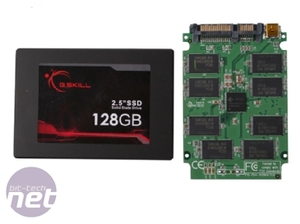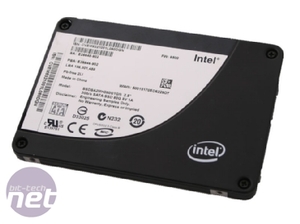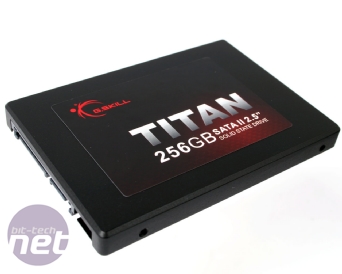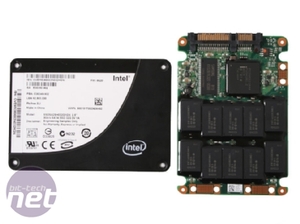
OCZ Vertex 120GB SSD
Manufacturer: OCZUK Price (as reviewed): £327.75 (inc. VAT)
US Price (as reviewed): $379.99 (ex. Tax)
Formatted Capacity: 119.24GB
Claimed Max Read: Up to 250MB/s
Claimed Max Write: Up to 180MB/s
First, A Little History
Solid state drives have come a long way since the first wave of consumer drives at a size and performance people considered worth buying, hit e-tailer shelves last year. That first wave of drives, based upon JMicron’s JMF 602 drive controller and using affordable MLC NAND Flash memory promised blistering read speeds capable of leaving mechanical hard disk drives in the dust, and at around £300 for a 128GB drive, didn’t break the bank too much either, compared to what was previously available.Unfortunately this first wave of affordable SSDs, while wonderfully quick at reading data, were let down by write performance, which often proved to be extremely lacking. The JMicron JMF 602 based SSDs were easily outpaced by even bargain basement mechanical hard drives at a fraction of the cost of the high speed SSDs and drive stuttering, the result of extremely high random write latencies, made even normal desktop use deeply disappointing, although randomly occurring and hard to reproduce.
Competing with this first wave of commercial SSDs were Intel’s X25-M and X25-E SSDs, made using Intel’s own proprietary drive controller and firmware. While vastly more expensive than the competition both drives excelled at both read and write speeds, outstripping mechanical hard disks in many circumstances and showing none of the problems of dealing with the random write commands of day to day desktop use.


Click to enlarge - the first line of JMicron based SSDs were disappointing, while the X25-M was more well rounded
However, things weren’t perfect in the Intel camp either, and X25-M users soon reported performance issues following extended use. Intel X25-M performance was degrading overtime as data was written and then rewritten, and despite firmware updates, we have found this still persists as an issue with the drive, making it an unattractive choice for use as a operating system boot drive. This is highly frustrating as that’s what it’s been specifically built for!
The next wave of SSDs from third party manufacturers saw a refresh of the JMF 602 drive controller, this time using two of the chips to create a kind of RAID-0 setup within the drive. While this switch massively boosted write speeds and improved the random write latency issues found in the first generation of JMicron based drives, random write performance was still well off that of conventional hard disk drives. If a chain is only as strong as its weakest link then the G.Skill Titan and OCZ Apex, both based on this new architecture, were still limited by their poor random write speeds and latencies, although now significantly reduced. We recommended the Titan in our buyer's guide because we felt the sheer lightening performance outweighed the chance of slight random pausing - we'd used the drive and simply not come across it in everyday use.


Click to enlarge - Dual JMicron based SSDs like the Titan were better, while SLC based drives like the Intel X25-E remain extortionately expensive
It’s annoying from a technological perspective. The potential of the SSD to revolutionise the way we use PCs by offering such drastically faster read, write, boot and load speeds is huge, but the first tentative steps of this new technology have been rough and unsteady. We feel that the SSD really hasn’t gotten out of the starting blocks yet, and until the technology is able to genuinely better the mechanical competition on every front at an affordable price, that mass switch isn’t going to happen.
With that in mind, allow us then to introduce the OCZ Vertex: an SSD that promises to do just that.

MSI MPG Velox 100R Chassis Review
October 14 2021 | 15:04








Want to comment? Please log in.